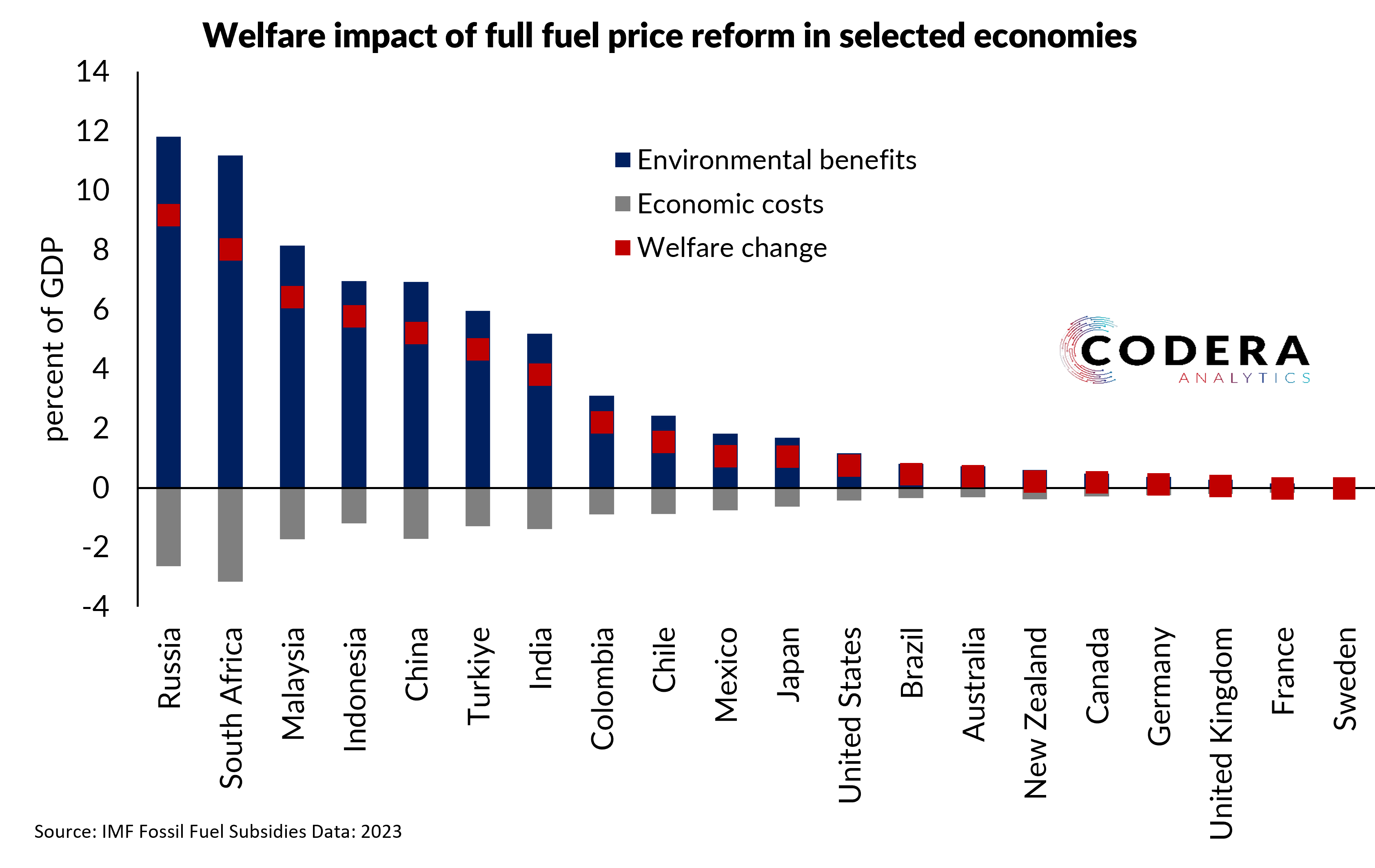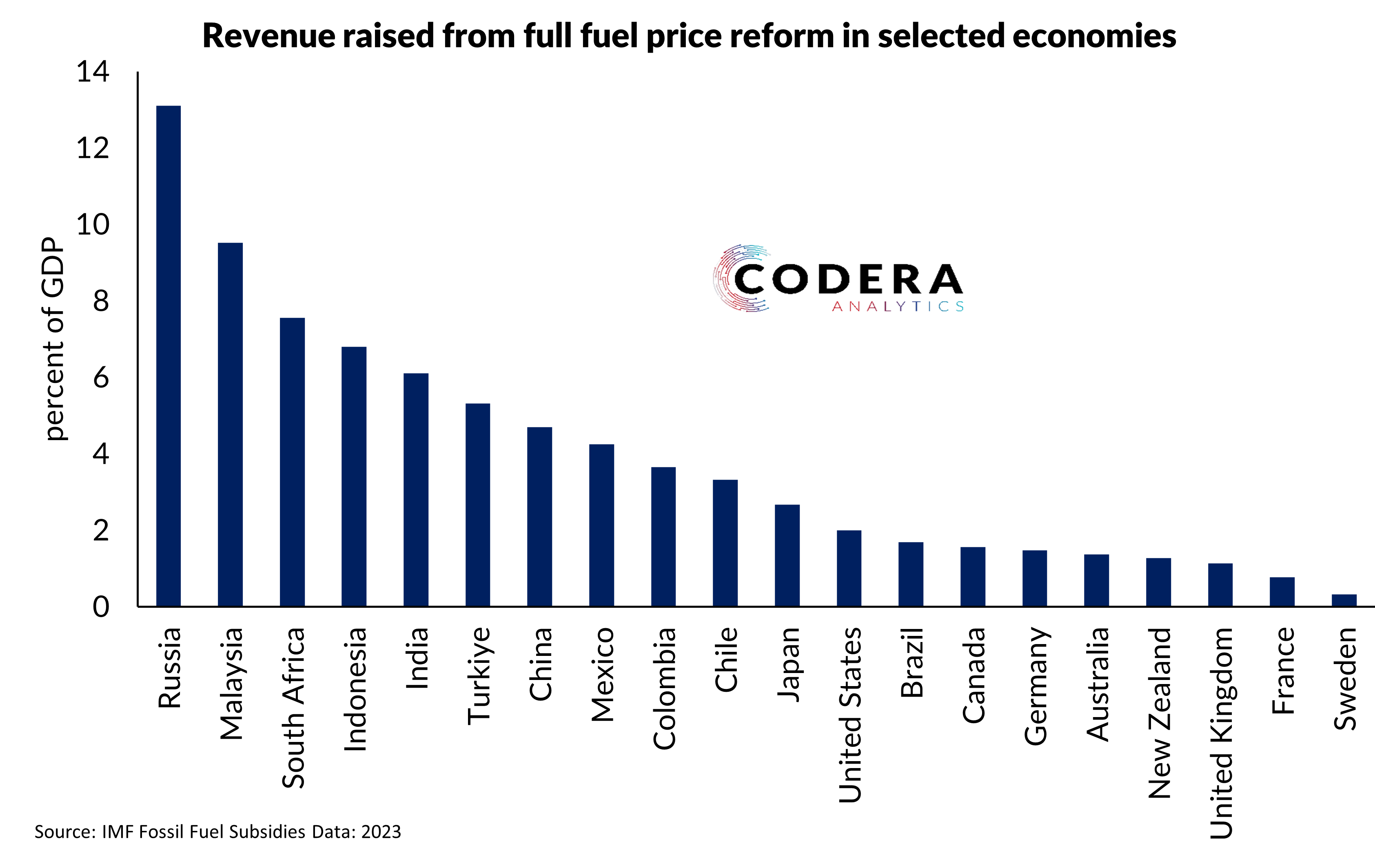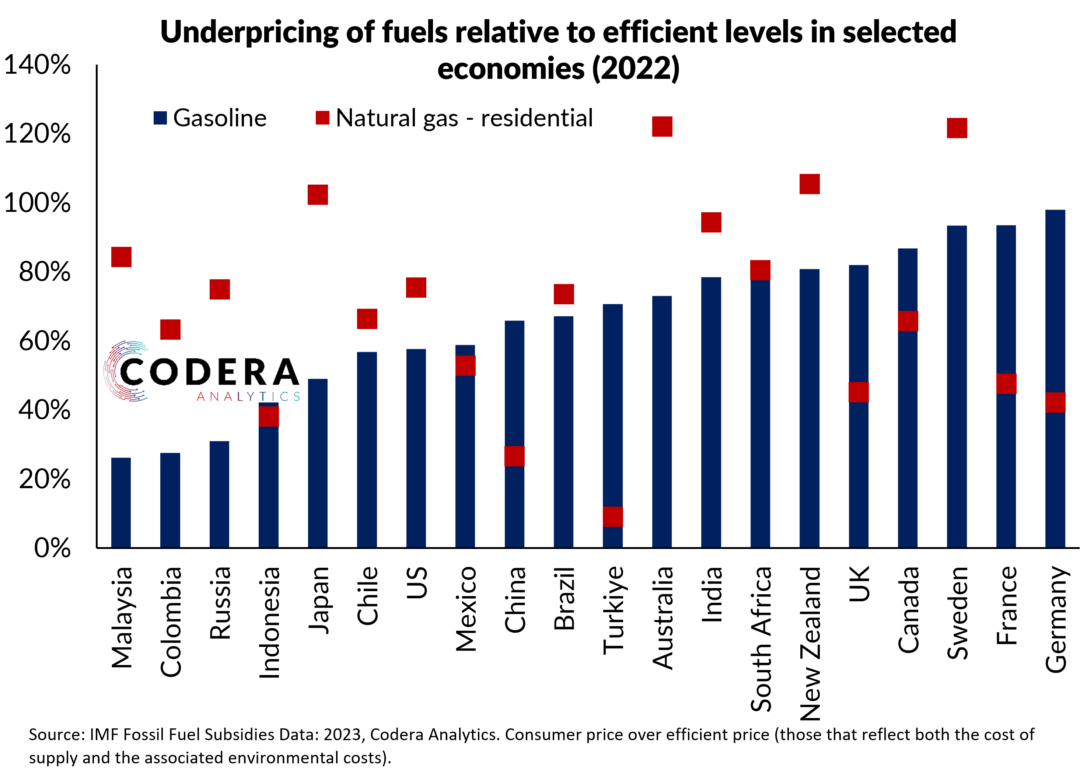Most advanced economies do not explicitly subsidize fuels. But, across the advanced and developed world, fuel prices do not fully incorporate the environmental costs associated with their supply and use. The IMF estimates that reforming fuel subsidies would raise welfare by creating local environmental benefits and removing price distortions, as well as helping to combat climate change. Globally, the IMF estimates full price reform would generate net welfare benefits of about 3.6% of GDP (environmental benefits of 5.2% of GDP less economic welfare costs of 1.6% of GDP). Full price reform would be estimated by the IMF to reduce global greenhouse gases below 2019 levels needed by 2030 (i.e. a 25-50% reduction) and contain global warming to 1.5-2 degrees. The IMF estimates that South Africa would be one of the largest net beneficiaries of full fuel price reform, with revenue increases totaling 7.5% of GDP, and total net welfare gain of 8% of GDP.



